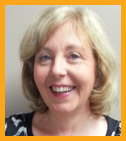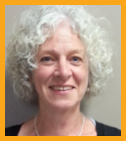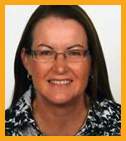Our People
Authors
Maryanne Tipler
ONZM

My career began as a high school mathematics teacher and from quite early on I was interested in the process of how students learn mathematics. I enjoyed the challenge of working with students who found learning mathematics difficult and it was through experimenting with ways of teaching them that I realised the importance of good resources. At that time there were none that suited my needs and so I began writing my own. Soon after this I teamed up with Kathy Catley who had began writing resources for New Zealand secondary pupils. During the next few years we completed a series for the secondary school in New Zealand and later wrote a very successful series for ages 11 to 16 in Britain. When Kathy retired I initially wrote a series for low achievers in Britain. During this time I was also involved in setting up a learning support service at Christchurch Polytechnic. I became further interested in how people learn, their differing learning styles and the barriers to learning. Again I was able to experiment with ways of teaching mathematics. I had three children of my own at primary school at the time and became aware that primary teachers had a huge workload coming to grips with many new curriculum areas all in the space of a few years. I had a firm conviction that mathematics could be learned and enjoyed by all students regardless of their ability and that good resources played a vital part in this. The National Curriculum Mathematics primary series (Levels 2 to 4) was written during this time (1994 to 2000).
I am passionate about creating mathematics resources that fully align with the new 2024 New Zealand Curriculum, with the goal of helping teachers teach more effectively and supporting students in truly understanding maths. Our team has produced a comprehensive set of supplementary books for Years 3 to 8 which, alongside our Connecting All Strands series, ensures complete curriculum coverage. To make planning even easier, we offer a detailed, downloadable mapping that guides you through the new curriculum—giving you confidence that every aspect is thoroughly addressed.
Congratulations
Maryanne has been recognised in the Queen's New Year's honours 2019, becoming an Officer of the New Zealand Order of Merit. Congratulations Maryanne!!!
Click here to view the stuff.co.nz article...
https://www.stuff.co.nz/national/education/109635671/new-years-honours-the-amazing-mrs-tipler-recognised-for-services-to-maths
Sue Timperley

During my years of teaching as both a mathematics teacher in secondary schools and a primary teacher in Britain and New Zealand I have become aware of the varied ways in which students learn. In my mathematics teaching I strove to provide students with learning environments and resources that would enhance their learning. I was always cognisant of the diversity of abilities and mathematical understanding of the students in my class.
Maryanne and I write resources that are directly relevant to New Zealand students. They are able to engage in activities that use real life information presented in a variety of ways aimed at their level of understanding.
Our mapping guides are specifically designed to help teachers plan engaging lessons that meet the new 2024 Maths and Statistics curriculum. I currently volunteer at a local intermediate school and appreciate that finding resources that promote clear mathematical thinking and problem solving skills is very time consuming for teachers.
In my experience primary and intermediate pupils who are confident in their mathematical knowledge are better prepared to transition into secondary education ready to face new challenges in mathematics at this level.
Jenny Holland

Jenny has had many years of experience teaching in classrooms from years 1-4. She took part in the Ministry of Education’s ENP and ANP professional development, and more recently the Accelerated Learning in Mathematics (ALiM) and Mathematics Support Teacher (MST) initiatives. Jenny spent several years working with small withdrawal groups to accelerate learning for students in Years 4-6 who are struggling to make progress in mathematics. She is currently employed as a Leader of Learning with responsibility for implementation of the mathematics curriculum in a large Hamilton primary school.
Jenny has a Post-Graduate Diploma in Mathematics Education and recently completed a Master in Education (Professional Learning) at Waikato University with first class honours. She was a teaching consultant for the NZCM series Stages 4 and 4-5, and the new Connecting All Strands series. She has written for Caxton in the level 3B, and Level 2 books of this series.
Jenny is the lead author for our Level 2A Online Teacher Support and Level 2B Online Teacher Support.

